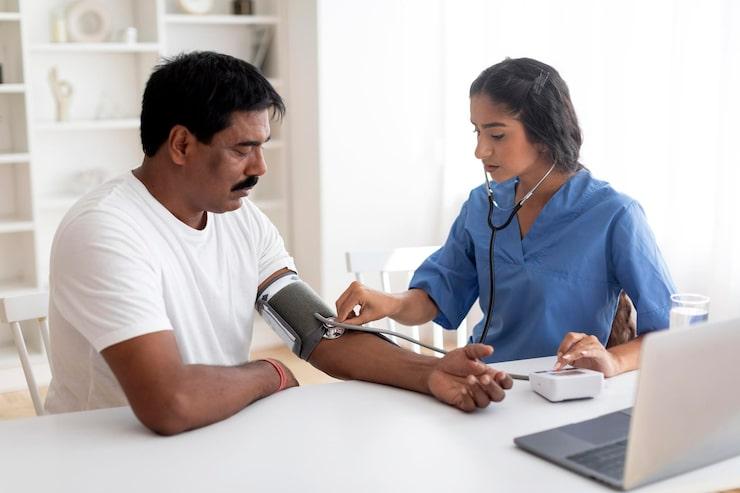
Doctor explaining a report to a patient
People often struggle to find time in their schedules for doctor visits unless necessary. People usually delay checkups until they are compelled by some dire ailment that might even be life-threatening. Any doctor would recommend annual check-ups as the best precaution for a wide range of chronic diseases, especially cancer, heart disease, and diabetes. However, these are not the only reasons to follow through with an annual health check-up. There are plenty of reasons people fail to consider which are crucial to the importance of annual health checkups.

Female Doctor pointing to a a clip board with a pen
Annual checkups allow doctors to:
This long-term record helps:
Annual checkups ensure you’re up-to-date on:
These preventive measures can dramatically lower your risk for serious illness.
They help:
When you see your doctor regularly, they get to know:
This familiarity helps doctors give more personalized, effective care, which makes it easier for patients to discuss sensitive issues.

Female doctor checking blood pressure
A typical annual checkup may include:
Annual health check-ups not only update you on the condition of your health but also keep a measure of other health-related statistics. These statistics can help in the long term to track any life-threatening disease at its onset. They save valuable assets such as time and money while helping you improve your lifestyle. They are an excellent investment for both a healthy present and a healthy future.
We offer expert care across key specialties, including Medicine, Cardiology, Orthopaedics, ENT, Gynaecology, and more—delivering trusted treatment under one roof.
Prakash Hospital Pvt. Ltd. is a 100 bedded NABH NABL accredited multispecialty hospital along with a center of trauma and orthopedics. We are in the service of society since 2001.
OUR SPECIALITIES
Contact Us
D – 12A, 12B, Sector-33, G. B. Nagar, Noida, Uttar Pradesh 201301
+91-8826000033

© 2026 All rights reserved.
Designed and Developed by Zarle Infotech